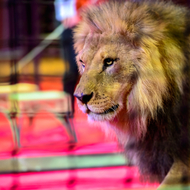
Move follows years of campaigning by the BVA and the RSPCA.
Vets and animal charities have welcomed the introduction of new legislation in Wales that makes it an offence to use wild animals in circuses through performance or exhibition.
The Wild Animals and Circuses (Wales) Act 2020, which came into effect on Tuesday (1 December), has been hailed by the RSPCA as “an historic moment” for animal welfare.
It follows years of campaigning by the BVA and the RSPCA, which also led to the introduction of similar legislation in Scotland in 2018 and England in 2020. Wales will now join an estimated 45 other countries, nations and states to have also acted on the practice.
Welcoming the ban, BVA Welsh branch president Ifan Lloyd said: “We are delighted to see this legislation come into effect today, after long-term campaigning by vets and animal charities and a huge groundswell of public support. BVA has always been clear that a circus is no place for non-domesticated, wild animals, both from an animal welfare and an ethical point of view.
"Wild animals have complex welfare and behavioural needs that cannot be met within a travelling circus environment. While only a small number of individual animals will be affected, this ban goes to the heart of how we think about and treat animals in the modern world.”
Previous research by RSPCA Cymru found that 74 per cent of Welsh citizens support a ban on wild animals in circuses. Earlier this year, Members of the Senedd voted 53 votes to zero in favour of the Wild Animal In Circuses Bill passing its final stage of legislative scrutiny.
David Bowles, RSPCA head of public affairs, told the South Wales Argus: “We've had overwhelming public support for this campaign - and the voice of those supporters was so important in helping secure this legislation; which means the spectre of wild animals being performed or exhibited in travelling circuses in Wales is finally - once and for all - consigned to the history books. It's a great advert for what we can achieve together for animal welfare."



 The latest
The latest